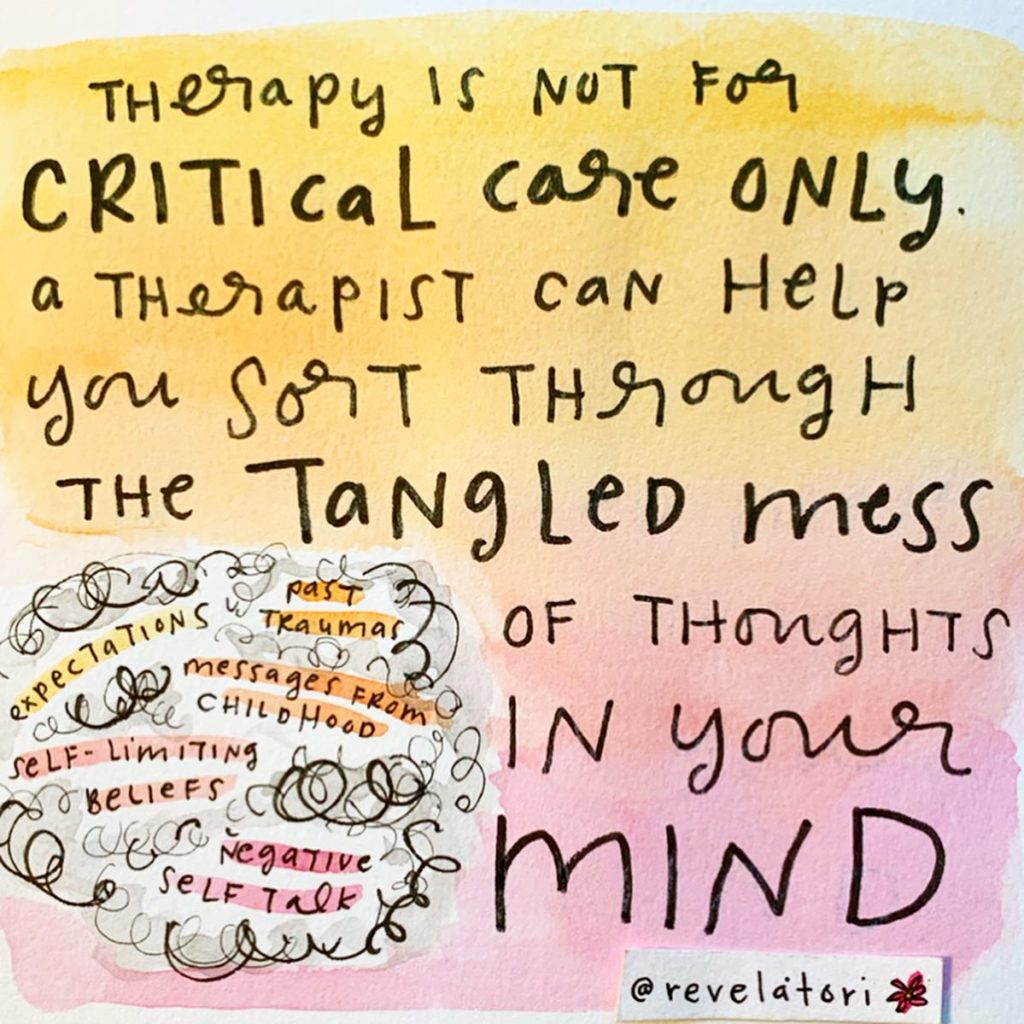What is different about my work? What do I value?
I value real change, growth and compassion. Therefore my work is based on a diverse set of trauma-informed therapeutic approaches, to assist clients in recognising how their feelings, thoughts and behaviours connect. You may or may not identify with trauma, but everyone benefits from trauma-informed care. Why?

What is special about trauma-sensitive therapy approaches? They allow us to move beyond the limitations of traditional talk-therapies, which can increase ruminations and feelings of being stuck and powerless.
The client feels empowered, the rehashing of events and thoughts stops, and there is no power struggle with the therapist: You stop feeling misunderstood.Things start to make sense, you can make decisions from a place of clarity, calm and confidence that you never had before.
In trauma-sensitive care, change happens from the inside-out (« organically » – the client is guided in the process but he is in the drivers seat – meaning no cookie-cutter solutions forced on you that don’t resonate with you and don’t seem to work), reliably, in a safe, well-paced and growth-oriented way.
More than just resolving the painful issues that pushed you to seek therapy, you will be able to reach new developmental goals and grow according to your true potential – uninhibited by intense negative emotions, worries and ruminations, procrastination, and the inability to make decisions.
In some cases, I may also use equine assisted therapy and mindfulness techniques to help individuals gain new strategies for personal growth and to improve the effectiveness of the therapy (e. g. developing better self-confidence, self-efficacy, assertivity and other interpersonal skills, etc.). I conduct therapy with adults.
Therapy
What is psychotherapy?
Psychotherapy refers to the treatment of psychological problems using scientifically recognized psychotherapeutic methods. Psychological problems include disturbances in perception, behavior, emotional processing, social relationships, and bodily functions.
What is special about behavioral therapy?
Behavioral therapy is based more strongly than any other method on natural science principles. It is subject to scientific effectiveness research and is constantly evolving (see « Schema Therapy »).
What is treated in behavioral and integrative / trauma-sensitive therapy?

- Depression
- Anxiety, such as phobias (social phobia, specific phobias such as fear of heights), generalized anxiety (constant worrying), and panic attacks (which seem to come out of the blue)
- Trauma (rape, accident) and complex trauma (often resulting from childhood experiences with close relatives, see publications by Dr. Bessel van der Kolk)
- Exhaustion, “burnout”
- Self-esteem problems, lack of self-confidence
- Eating disorders (bulimia, anorexia, obesity)
- Physical illnesses (indirectly) triggered or maintained by psychological factors, e.g., stomach ulcers
- Follow-up care, rehabilitation, and support for serious or chronic physical illnesses
- Personality disorders, e.g. avoidant personality disorder, dependent personality disorder, etc.
- Psychologically induced disturbances of bodily functions (sexuality, high blood pressure, sleep disorders, etc.)
How to know if you need therapy?
If you share one or more of the following statements, this could be a very good fit:
- I have an acute problem that is mainly connected to my work or my relationship. I need a neutral counterpart to help me sort things through and support me in developing possible solutions – a few sessions will probably be enough.
- I want to go deeper and understand my long-standing patterns (“schemas”) – that is, my ways of thinking, feeling, and reacting – in the context of how they developed, going back to my childhood. I am aware that this is both an insight process and a developmental process.
- I want to better recognize the possibilities for change within myself (in my thinking) and in my life, and at the same time build more acceptance for things that lie beyond my control – in order to free up energy that is currently tied up in destructive thoughts and the unpleasant feelings that go along with them.
- I expect support for self-help and I am looking for conversations that encourage self-reflection.
- I know that I see the world through my own “lens”, which is why I need an experienced, impartial counterpart who can help me recognize my contradictions and work out thought patterns that match who I am today, as well as my current values and life goals.
- I am aware that the causes of my symptoms and problems will not simply disappear through therapy sessions. Improvement will only happen if I put the insights gained into practice in my daily life, treat myself and others differently, and, where necessary, make important changes in my life.
If you recognize yourself in one or more of these statements, then your concerns and what I offer are a good match.
If you are interested, feel free to contact me for an initial session by mail (koehler.psy@gmail.com) and let me know your preferred appointment time or schedule a « premier entretien gratuit de 15-20min » directly via doctolib .
Lifestyle changes
I partner with other health care providers, such as a MD & nutritionist, a physiotherapist, etc. to make sure we also cover the physical health aspects of your situation (sleep / fatigue, pain, nutritional status, psychonutrition etc.).
Common issues we address in therapy
- Trauma, both simple and complex (complex post traumatic stress disorder, Bessel van der Kolk’s broad definition of trauma including relational and developmental trauma, i.e. childhood trauma, as opposed to only life threatening events like accidents, aggressions, etc. as psychiatric manuals traditionnaly define trauma)
- Feeling sad and not knowing why
- Worrying constantly about what will happen next
- Perfectionism that no longer serves you
- Societal pressures regarding your body and career
- Coping with depression, anxiety, anger and other feeling
- Adjusting to changing family and societal roles
- Feeling ignored by family or friends or having your issues minimized, misunderstood, or dismissed
- Finding meaning and purpose in your life
- Adjusting to changes in your body image, quality of life, and relationships
- Reducing risk behaviours (career, relationship, health or else)
- Financial anxiety
- Fears, phobias, and avoidance
- Personality issues, like self sacrifice, perfectionism and workaholism, fear of abandonment, being to passive or submissive, a general lack of assertiveness in your life and the toll it takes on your mood and wellbeing (depression / anxiety / insomnia / negative emotions like sadness /rage, lack of confidence and self worth)
- Concerns about death, about identity related to multicultural / cosmopolitan lifestyle
Others issues:
- You work hard at your job but you feel stuck.
- You’ve got friends and family around you but you’re feeling disconnected from them.
- You worry a lot because you question yourself endlessly, considering all options and feeling hopeless in all of them.
- You’re just stressed out and you have no idea where to start conquering it.
- You’ve got all these goals and dreams and you’re starting to wonder if you’re even good enough to achieve them
- You have to find ways to manage life transitions (job / marriage / divorce / “empty nest” etc.)
- You want to create a legacy and memories instead of just surviving
- You feel you don’t even know what you like, what is important for you, so getting there is impossible
- Etc.
I welcome
- All races
- All religions
- All sexual orientations
- All gender identities and expressions
- All countries of origin
- All abilities
- All ethnicities
- All bodies
- All people
My work and training

In practice, I work from the perspectives of integrative, trauma-sensitive, cognitive behaviour therapy (or CBT, including schematherapy and other values and relationship-based approaches, as well as IFS and EMDR) while helping you to find the root cause of your present difficulties. I have a master’s degree in clinical psychology (Université Paris 8) and am a registered ADELI clinical psychologist. For more on my training and work experience:
Training (in french)
Practical aspects
You can email me (Koehler.psy@gmail.com) or text me for a ± 50min session or a free 20-30 min phone call (0603872825) or schedule one directly through doctolib
Fee: 100-120 euros (wire / transfer, cash)
If need be, please cancel or reschedule 48h (outside of the weekend) before an appointment. If you cancel less than 48 hours in advance or do not show up for your appointment, you will be charged for the full rate of the session (unless there is a valid reason of course, « conditions générales de vente »)
Sessions can be done through Meet
